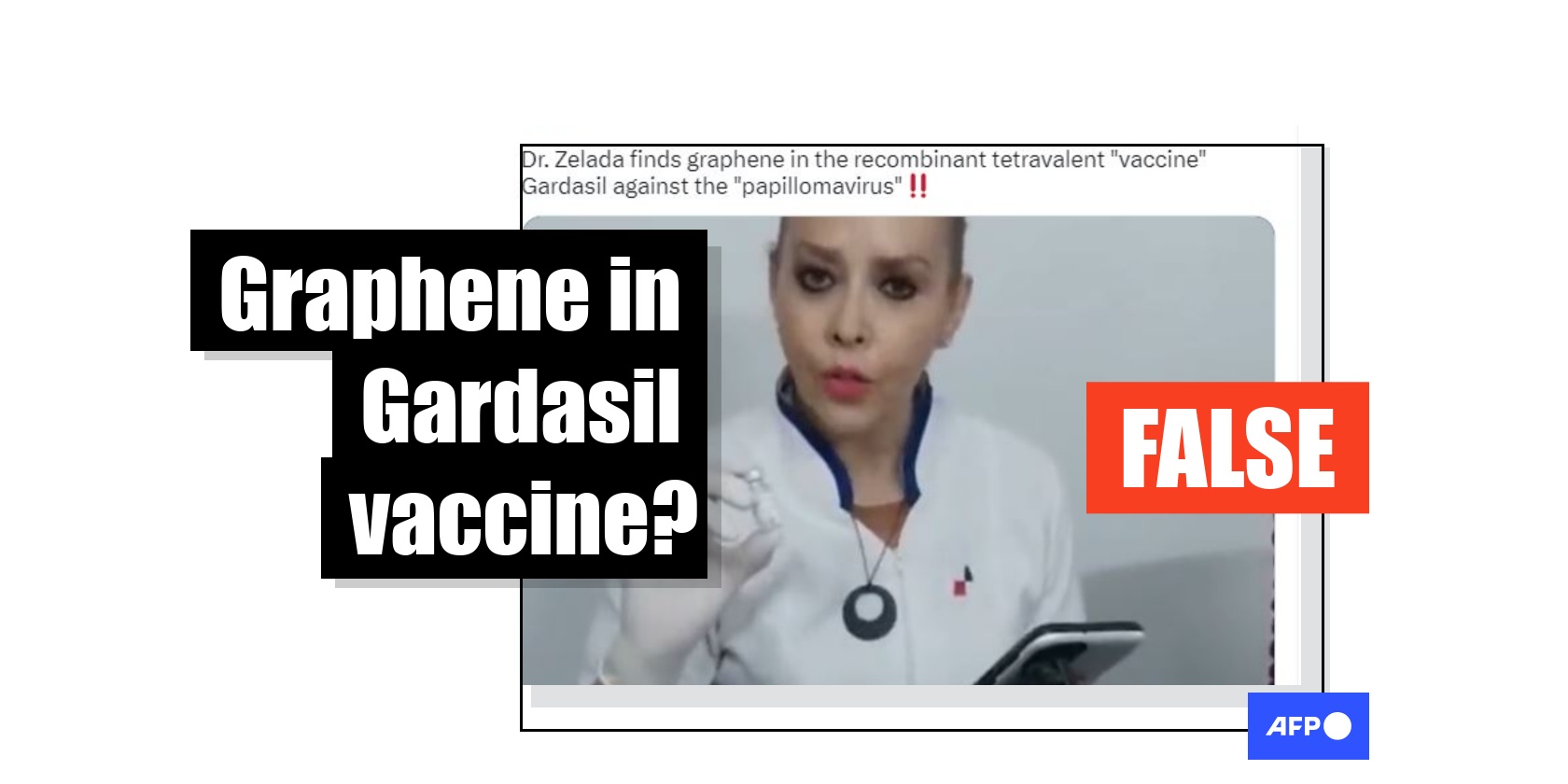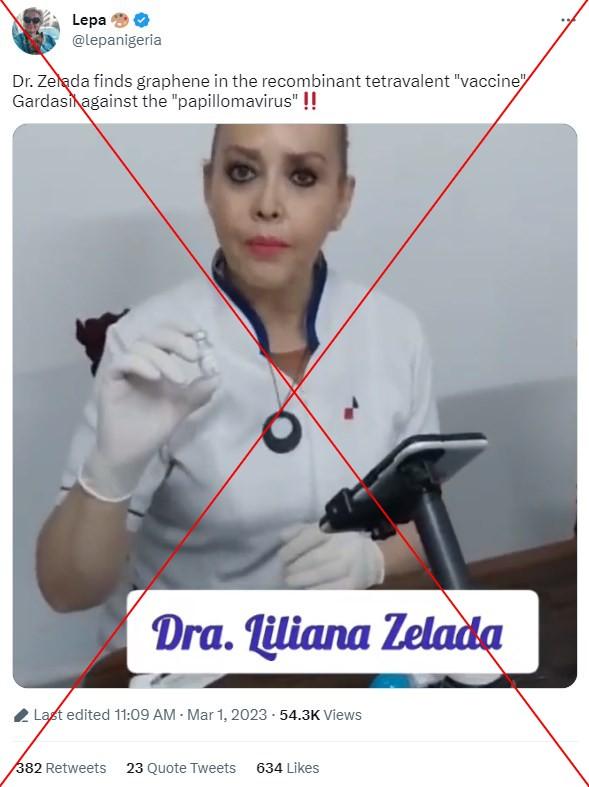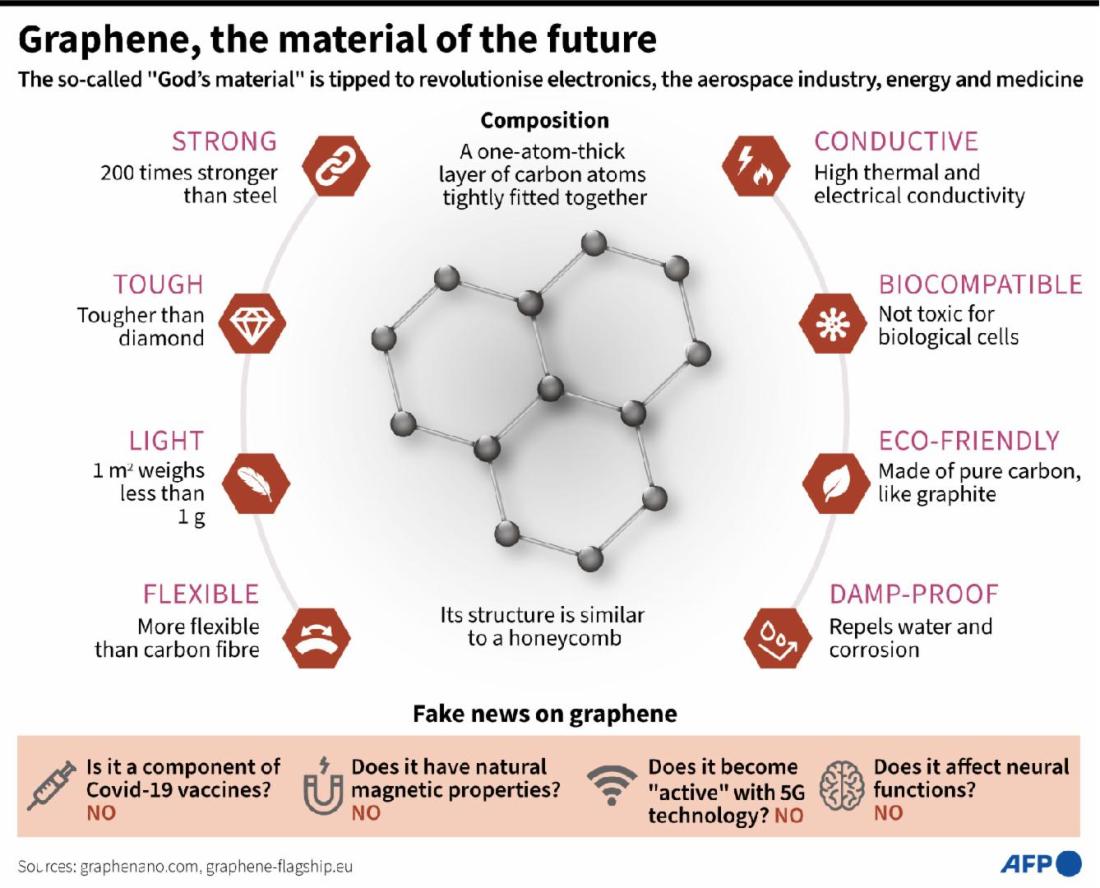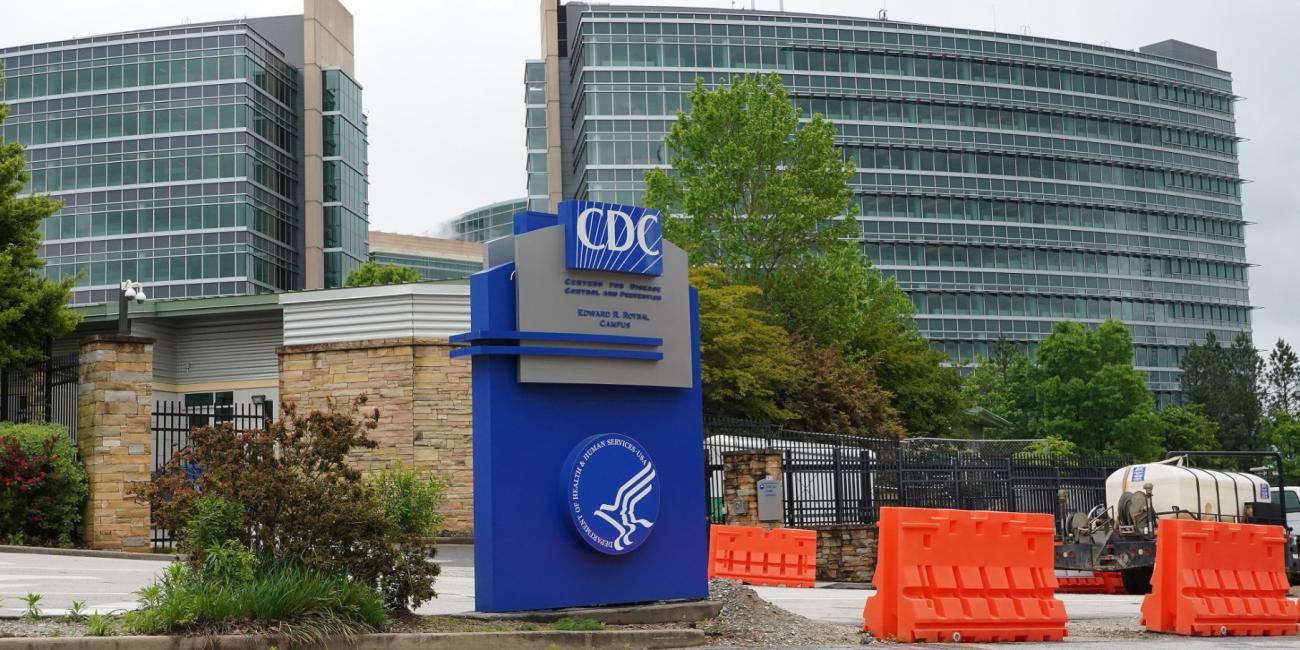
Video falsely claims HPV vaccine contains dangerous ingredient
- This article is more than two years old.
- Published on March 20, 2023 at 22:18
- 3 min read
- By Bénédicte REY, Ana PRIETO, AFP France, AFP Argentina, AFP Canada
- Translation and adaptation Marisha GOLDHAMER
"Dr. Zelada finds graphene in the recombinant tetravalent 'vaccine' Gardasil against the 'papillomavirus,'!!" says a March 1, 2023 tweet.
The post includes a video showing Liliana Zelada, a purported doctor in Bolivia whom AFP has previously fact-checked, using a microscope to examine liquid she says came from a bottle of Gardasil.
In Spanish, Zelada says she wants to see whether the vaccine contains graphene oxide, a compound that researchers are studying for its possible use in biotechnology. She shows dark spots under the microscope and claims the liquid is "very contaminated" with graphene, which she links without evidence to blot clotting and heart problems.

The same video spread to Rumble and Bitchute, while also racking up thousands of views on Facebook, Twitter and Telegram in French. The clip mentions La Quinta Columna, a group AFP has previously fact-checked for spreading health misinformation.
Merck's Gardasil 9 vaccine helps prevent diseases caused by nine types of HPV, the most common sexually transmitted infection. The US Food and Drug Administration (FDA), Health Canada and the European Medicines Agency (EMA) have all approved the shot, which is recommended for girls and women to prevent cervical cancer and for boys and men to prevent genital warts.
MSD -- Merck's name outside the United States and Canada -- told AFP on March 3 that there is no graphene oxide in Gardasil 9.
According to the FDA, the vaccine's ingredients include: "proteins of HPV Types 6, 11, 16, and 18, amorphous aluminum hydroxyphosphate sulfate, yeast protein, sodium chloride, L-histidine, polysorbate 80, sodium borate, and water for injection."
Even if there were graphene in Gardasil 9, the microscope Zelada uses in the video would not detect it.
"With a conventional optical microscope, it is impossible to know or define the chemical composition of what is being observed," said Maria Celeste Dalfovo, an Argentine chemist who specializes in nanomaterials.
What is graphene?
Graphene is a form of carbon just one atom thick -- many times thinner than a human hair. It is transparent but stronger than steel.
The Nobel Prize-awarded material shows promise for a wide range of applications, including nanomedicine. Researchers are studying the potential use of graphene oxide (GO) in vaccines as an adjuvant, an ingredient that helps trigger a stronger immune response.

Scientists are also examining the risks of graphene and its derivatives. A 2021 review of studies on the compound's toxicity found contradictory evidence.
"Some studies have shown that GO has no toxic effects on cellular behavior, while others have reported that this nanomaterial can induce cellular damage," the paper said.
That uncertainty has contributed to misinformation about the material. AFP has previously debunked claims of graphene oxide in Covid-19 vaccines.
HPV shot is safe
The video also claims Gardasil 9 is associated with clotting and heart issues, but these are not among the shot's known adverse effects.
Gardasil 9 was studied in clinical trials with more than 15,000 participants, according to the US Centers for Disease Control and Prevention (CDC). The agency says on its website that the most common side effect associated with Gardasil 9 is "pain, swelling, and redness in the arm where the shot was given."
Any vaccine can cause anaphylaxis if the recipient is allergic to one of the ingredients. Gardasil 9 is not recommended for those allergic to yeast or people who have previously had allergic reactions to vaccines.
"Findings from many vaccine safety monitoring systems and more than 160 studies have shown that HPV vaccines have a favorable safety profile -- the body of scientific evidence overwhelmingly supports their safety," the CDC says on its website.
Researchers have found misinformation is a key driver of parental resistance to HPV shots. AFP has fact-checked other false and misleading claims about vaccination here.
Copyright © AFP 2017-2026. Any commercial use of this content requires a subscription. Click here to find out more.
Is there content that you would like AFP to fact-check? Get in touch.
Contact us




